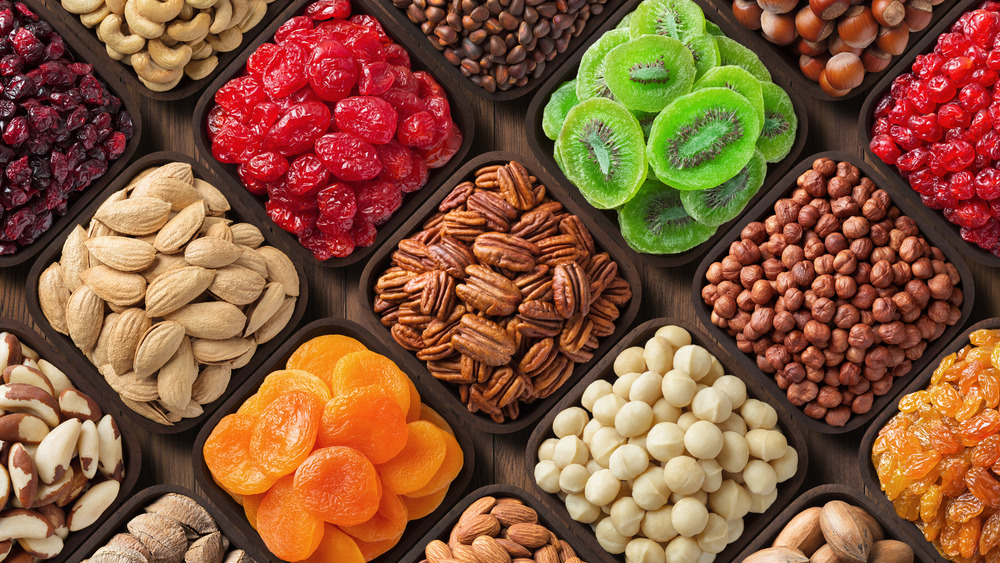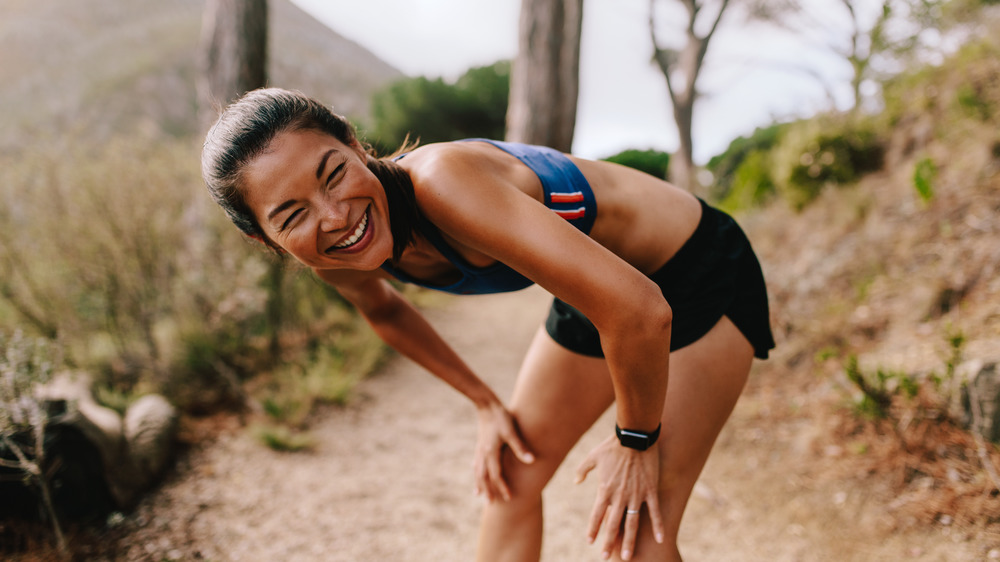Why You Should Rethink Eating So Much Dried Fruit
Drying fruit involves dehydrating fresh fruit and removing most of the water content. Quite simply, this fruit is now more compact, lighter weight, and preserved for a lengthy time, making it a popular snack for hikers and travelers (via Healthline). Common choices of dried fruit include prunes, dates, figs, raisins, and apricots. Other fruits such as bananas, apples, mangoes, and pineapples are popular but are often served in candied or coated varieties that change their nutritional value. And when it comes to health, many people enjoy dried fruit because it is rich in fiber and vitamins as well as high in phenolic antioxidants — but that information can be a bit misleading.
Lisa Richards, nutritionist and author of The Candida Diet, explained the pitfalls of eating too much dried fruit to Mashed. "The drying process causes fruit to become more calorically dense, based on weight, because it becomes more concentrated," Richards said. In essence, dried fruit can be a far larger snack calorie-wise than you might expect, and easy to overeat. Richards continued, "This means if the person eats 100 grams of apricots, they will consume 50 calories if it were fresh and nearly 300 if that 100 grams is dried. Because of its small nature, dried fruit is easy to overeat because it takes more to activate the stomach's stretch receptors, which is what causes the feeling of fullness."
There's a time and place to eat dried fruit
None of this means you should avoid dried fruit altogether. Instead, understand this snack has a time and place, and eat it in moderation. Richards explained, "In some regards, dried fruit can be a great, nutrient-dense addition to a diet, but should be consumed in moderation. For those wanting to enjoy dried fruit, they should take the time to measure how much they are adding to their food and avoid eating it by itself." Dried fruit is also useful for those active in the outdoors.
By weight, since dried fruit can pack about 3.5 times the nutritional punch as a heavier piece of fresh fruit, it can make a healthier snack portable where fresh fruit would be smooshed and damaged. Pack some hiking and add in other great healthy snacks like celery sticks or carrots and even some dried seaweed to meet your nutritional needs for heavy outdoor activities (via Green Belly).
And as a rule of thumb, always be mindful of your caloric needs versus your caloric intake — eat in moderation and according to your physical activity and needs.

